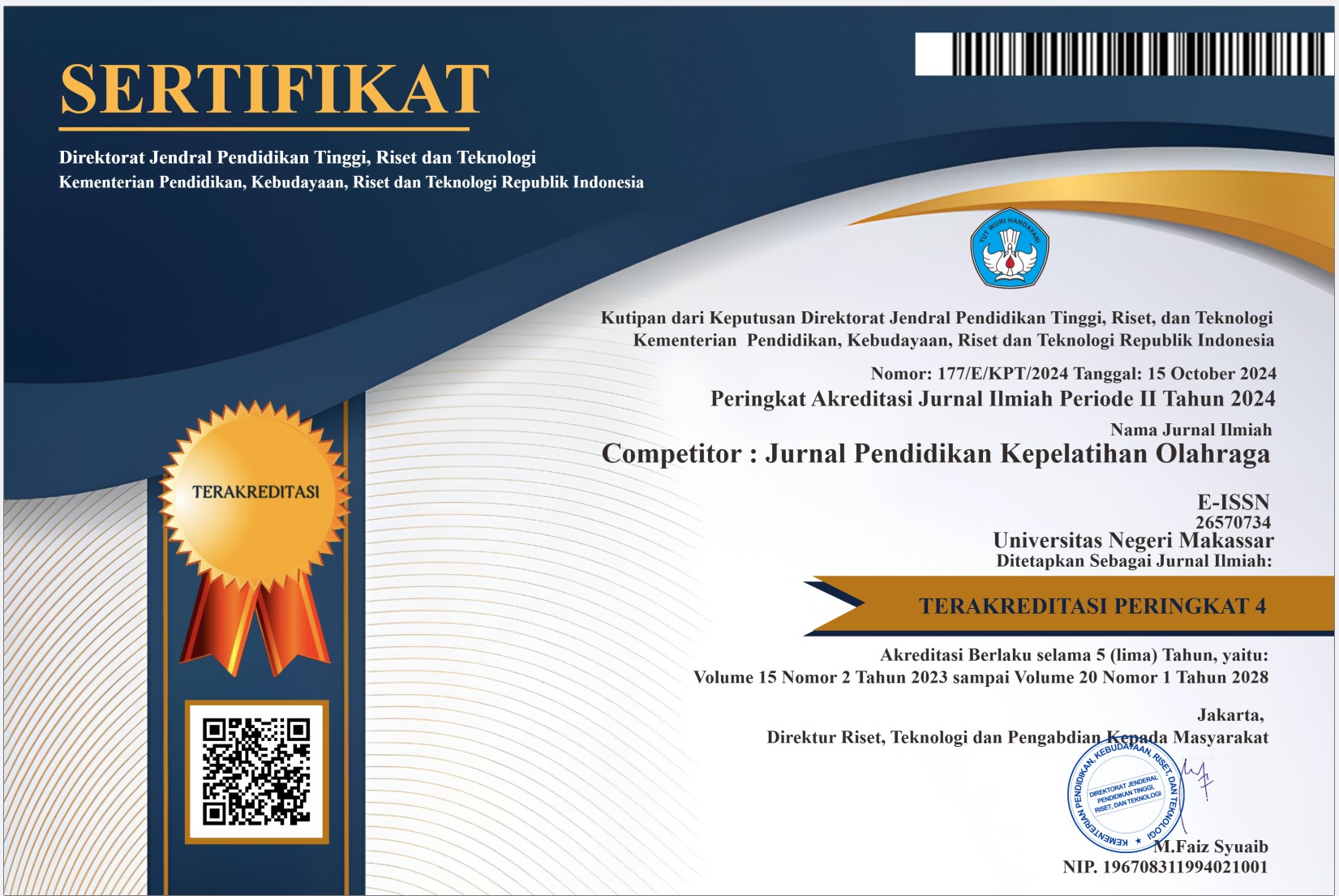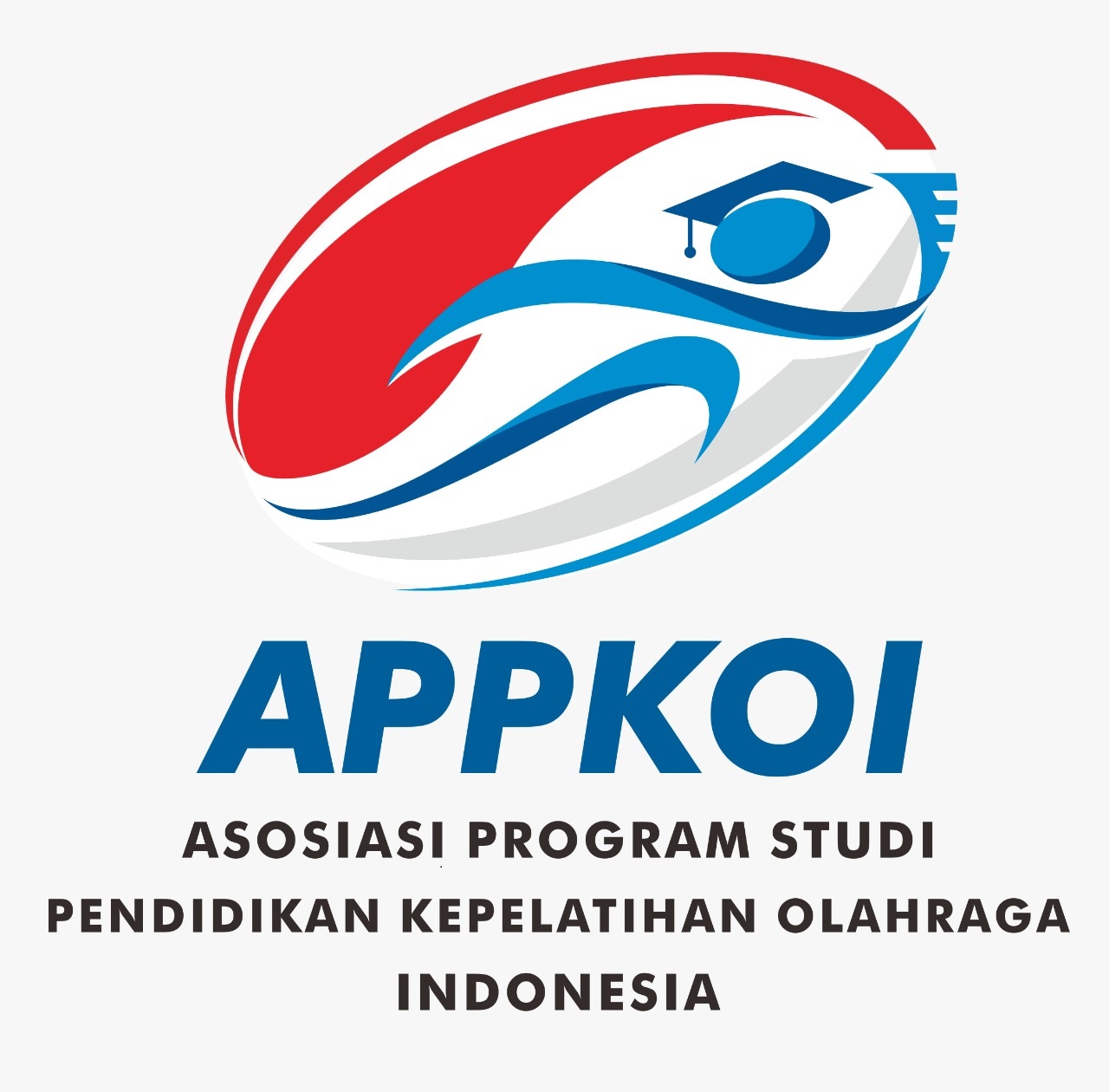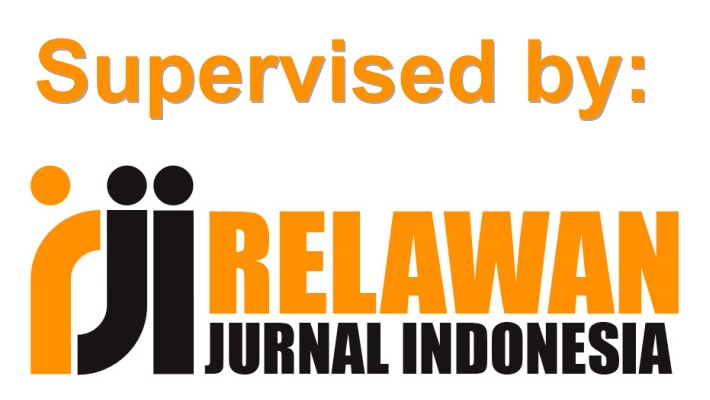The Effectiveness of Problem-Based Learning (PBL) Strategy On Learning The Concept Of Travelling Violation In Basketball
DOI:
https://doi.org/10.26858/cjpko.v17i2.142Keywords:
Strategy; Problem-Based Learning (PBL); Learning; Travelling Violation Concept; Basketball.Abstract
This study aims to examine the effectiveness of the Problem-Based Learning (PBL) strategy on students’ understanding of the concept of travelling violation in basketball. The proposed hypothesis is that the PBL strategy is more effective than conventional teaching methods in improving students’ conceptual understanding of the material. The research employed a quantitative approach using a quasi-experimental design of the non-equivalent control group type. The sample consisted of 30 eighth-grade students from a public junior high school in Trenggalek Regency, divided into an experimental group and a control group using purposive sampling techniques. The research instrument was a multiple-choice test developed based on indicators of conceptual understanding. Data were analyzed using an independent t-test with the assistance of SPSS version 21. The results showed a significant difference between the posttest scores of the two groups, with a significance value (Sig. 2-tailed) of 0.001 < 0.05. The experimental group achieved a higher mean score (84.27) compared to the control group (72.13). These findings indicate that the PBL strategy is effective in enhancing students' understanding of the travelling concept by encouraging active thinking and discussion. The implications of this research highlight the importance of implementing PBL strategies in physical education learning, especially in materials that require conceptual understanding of game rules. Further studies are recommended to be conducted over a longer period and on other physical education topics. Additional materials in this study include 9 references and 2 data analysis tables.
References
Aini, D. (2022). Pemahaman mengenai peraturan pertandingan bola basket pada atlet Junior’s Basketball Blitar. Pendidikan Kepelatihan Olahraga, 4(5), 101–107.
Dewi, N. C. (2019). Jurnal Edukatif. Jurnal Edukatif, V(1), 66–72.
FIBAOfficialBasketballRules2024_v1_0a.pdf. (n.d.).
Isnawan, M. G. (2020). Kuasi-ekperimen.
Mayasari, A., Arifudin, O., & Juliawati, E. (2022). Implementasi Model Problem Based Learning (Pbl) Dalam Meningkatkan Keaktifan Pembelajaran. Jurnal Tahsinia, 3(2), 167–175. https://doi.org/10.57171/jt.v3i2.335
Muhamad Irgi Abdillah Az-zarkasyi, & Hindun Hindun. (2023). Penerapan Metode Problem Based Learning (PBL) dalam Kurikulum Merdeka. Guruku: Jurnal Pendidikan dan Sosial Humaniora, 2(1), 69–80. https://doi.org/10.59061/guruku.v2i1.562
Saichudin, & Munawar, S. A. R. (2019). Penulis: Dr. Saichudin, M.Kes Sayyid Agil Rifqi Munawar, S.Or.
Simbolon, A. B., & Hendrawan, D. (2022). Jurnal dunia pendidikan 28. 2, 28–32.
Tanwisastra, I. N., Kanca, I. N., & Sucita Dartini, N. P. D. (2023). Model Pembelajaran Problem Based Learning Meningkatkan Aktivitas dan Hasil Belajar Lompat Jauh Gaya Jongkok. Jurnal Ilmu Keolahragaan Undiksha, 10(3), 292–299. https://doi.org/10.23887/jiku.v10i3.48807
Downloads
Published
Issue
Section
License
Copyright (c) 2025 Via Diah Rohmana, Septianing Lusianti (Author)

This work is licensed under a Creative Commons Attribution 4.0 International License.



















